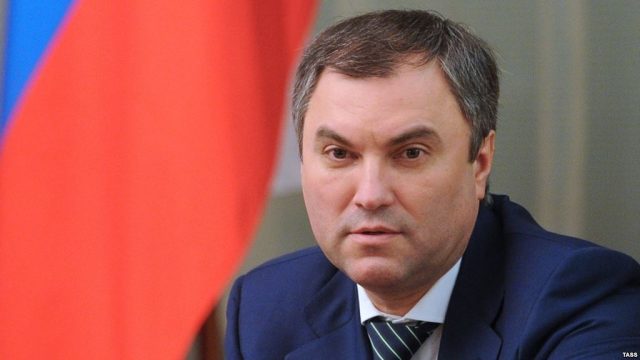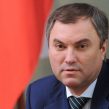
Duma Elections and the Future of Russian Politics After Putin
Publication: Eurasia Daily Monitor Volume: 13 Issue: 150
By:

Sunday’s (September 18) parliamentary elections in Russia were preceded by perhaps the country’s most listless and dullest campaign in years. The official results rather persuasively underscore this characterization. For the third time in a row, the same four parties—United Russia (officially having received 54.28 percent of the vote) and its three “subdivisions,” the Communists (13.45 percent), Liberal Democrats (13.24 percent) and A Just Russia (6.17 percent)—all headed by Kremlin loyalists, have entered the Duma (lower house of parliament). Not a single truly independent candidate entered the parliament. Moreover, the United Russia party once again holds a constitutional majority in the Duma (over three quarters of the seats) (TASS, September 19).
In looking at the election results, three particular aspects are worth emphasizing:
First, these elections were no more free or fair than those held in 2011. Numerous reports highlighted cases of ballot rigging and undue pressure on opposition candidates (TV Rain, Deutsche Welle, September 19); but today no one is likely to protest the results. Even though the number of parties (75) and independent candidates allowed to run was unprecedented in the last ten years (Cikrf.ru, accessed September 19), the extremely low voter turnout (47.8 percent, according to the Central Election Commission) signifies that those opposing the regime failed to mobilize themselves. Not a single opposition party succeeded in reaching the minimum 5 percent threshold to enter the legislature. Around 90 percent of voters supported the four pro-Kremlin parties, indicating President Vladimir Putin’s policies are rather popular in the country despite the economic crisis. The government will use these results to further reassert that it represents all of the Russian people.
Second, the elections clarified whether Putin will run for reelection in March 2018. He almost certainly will, despite the fact that he recently told Bloomberg he was yet to make a decision (Rg.ru, September 5). He engineered a constitutional amendment back in 2006 that allows him to stay on the job past the age of 66. This weekend, he received renewed proof of his popularity, and he surely expects that a year and a half from now he will still be welcomed by the vast majority of Russians. So one may disregard all the speculation about 2018. Neither former Yukos owner Mikhail Khodorkovsky with his castings for potential candidates, nor former finance minister Alexei Kudrin and his new economic doctrine can expect any support from either the public or the president. The leader, as well Russia’s economic policies, will remain the same as today.
Third, the most telling election result was the fact that Vyacheslav Volodin, the deputy Kremlin chief of staff, participated and was, of course, voted into the Duma from the United Russia party list. During the campaign, Volodin’s boss, Sergei Ivanov, a long-time Putin friend, was dismissed from the position of chief of staff and replaced by Anton Vayno. Thus, Volodin, who was the Kremlin’s spin doctor for years, will not be returning to his office, and will serve as a parliamentary deputy. Volodin already served as the Duma’s deputy speaker between 2007 and 2011; so his return to the parliament strongly suggests that, this time, he will be named the lower house’s chairperson—a position making him the fourth most important person in the official Russian political hierarchy.
This appears to be a strong signal for what may be expected to occur in Russian politics over the coming years. That is, as long as Putin stays on as president, and assuming United Russia (formally headed by Prime Minister Dmitry Medvedev) retains its control of the parliament, there is little doubt that Medvedev will remains in his government position, with Volodin serving as the Duma’s chairperson until at least 2021, when the next parliamentary elections are due. And 2021 is quite close to 2024, when one may expect the most intriguing events in Russia’s recent history to unfold.
President Putin obeyed the Russian constitution and stepped down in 2008; and there is currently no reason to think that he will not do the same in 2024, when his second consecutive term in office runs out. But this time, the presidency will not be filled temporarily until Putin (by then 74) returns. Instead, one should expect the rise of a true successor. And Volodin, who arguably began his rise during the past weekend, will be this person.
Vyacheslav Volodin looks like an ideal heir to Putin. He is younger than most of his current peers in the ruling elite and is seen as the perfect political manager. He has been absolutely loyal to Putin since they first met 17 years ago—not his “friend” per se, but rather a colleague, a trusted teammate. Moreover, he is not only a bureaucrat but a real experienced politician who participated in many electoral campaigns back in the 1990s and early 2000s, at the time of still competitive elections. He comes from a rather small town of Saratov (Volga region) and may easily gain the support of provincial voters. In the 1990s, after becoming embroiled in a conflict with the local governor, he moved to Moscow and started his own business. This will make him a good partner in a prospective dialogue with entrepreneurs. Finally, he is an ethnic Russian and never served in the KGB.
Yet, even more importantly, Volodin spent the last five years in the Kremlin as perhaps the most important person in the apparatus. He personally selected and confirmed more than 20 governors and close to 200 deputy governors; he was the one in charge of reviewing all the party lists for the recent Duma elections and picked at least half of the current members of the parliament’s upper house, the Federation Council. He was the main backer of the current liberal chief of the Central Election Commission, Ella Pamfilova, who can easily stay in this position until 2026. No other person in Russia has so many bureaucratic strings in his hands for controlling the country’s elites.
Since perhaps 2006 or 2007, a popular theory has circulated in Russia—predominantly championed by the liberal opposition camp—suggesting that either peaceful street protests unseat Putin’s regime, or the pro-democracy forces will sooner or later emerge victorious in an election. But as years have passed, nothing changed. Therefore, it is arguably more useful to deeply analyze the mechanisms of the power transitions within the elites; indeed, Putin will have to step down at some point. The first possible future outcome may have already surfaced this past Sunday—and this is the Duma elections’ most significant result.




